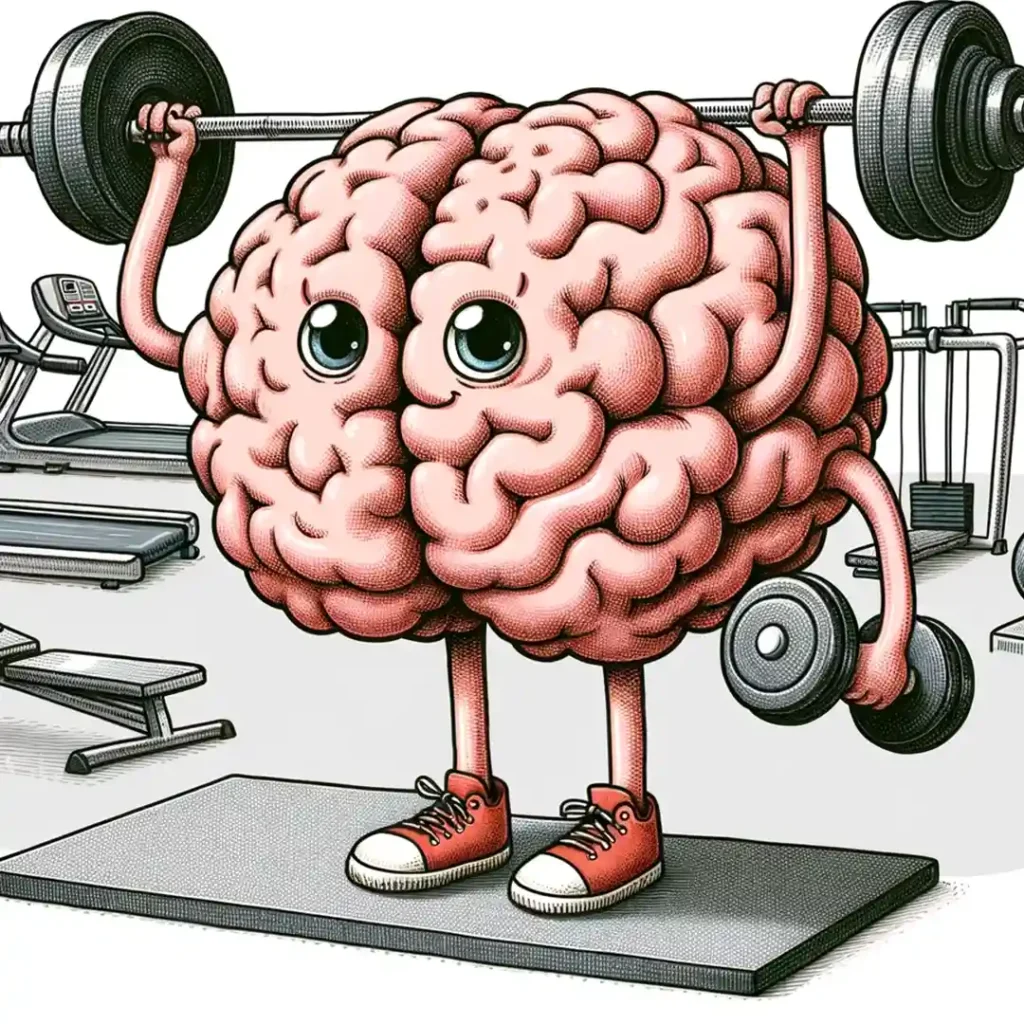The Vital Role of Teaching Memory Skills in Middle School
Teaching memory skills is essential: it helps students find academic success. Educators can significantly improve student outcomes by teaching memory techniques. In the next several Brain Builders Workshops, we will focus on developing memory skills for middle school students. These will primarily be in the form of classroom lessons that provide direct instruction on how to improve memory, retention, and recall. This article, however, is an overview of the importance of developing memory skills.
Memory in Middle School
Students encounter a variety of new academic challenges and developmental changes during middle school. In some cases, these changes may impact their ability to process and retain information. As educators, we can create new teaching strategies to better support students’ memory and learning.
Academic Challenges
Academic expectations shift in middle school. There is an increased workload and more complex subjects. We introduce higher-level thinking skills. We begin to move into more abstract concepts that require strong memory skills. Even the volume of information we expect students to remember significantly increases. Here is where memory skills that can include note-taking, summarizing, and using mnemonic devices become useful. Educators can assist students by explicitly teaching these skills. We can prepare them for successful learning throughout their academic careers and beyond. Click here for a mnemonic memory tool.
Developmental Factors
Besides an increased workload, the middle school years are a period of rapid cognitive development. Of course, there is puberty and all the joys that come with it, but inside the brain, students undergo growth in areas like processing speed and memory capacity. Their ability to store and retrieve long-term memories improves. This gives us an opportunity to help them develop better memory skills. We can introduce memory techniques that will provide them with a foundation for improved memory skills.
Benefits of Strong Memory Skills

Improved Academic Performance
- Efficient Studying: Students with strong memory skills can absorb and retain information more effectively. This will reduce the time needed for revision and allow students to make better connections in the content.
- Enhanced Test-Taking Abilities: Good memory aids in recalling information quickly and accurately during tests. This may lead to higher scores and less anxiety on tests.
- Connection to Better Grades: There’s a direct link between strong memory and high achievement.
Enhanced Learning Abilities
- Deeper Understanding: When we remember more, we also understand more. It allows us to form a more complex understanding of new topics by connecting new knowledge with existing knowledge.
- Retention of Information: Of course, creating a solid base of knowledge is one of the most important benefits of effective memory skills.
- Making Connections: A strong memory facilitates the learning process by making learning more comprehensive. It aids in problem-solving and creativity in learning.
Building Confidence in Learning
- Increased Self-Efficacy: Have a good memory helps students feel more confident in themselves. This alone can motivate students to take on new challenges.
- Reduced Stress: As was mentioned in the test-taking point, students who can rely on their memory are able to relax a little more because they feel able to learn.
- Positive Feedback Loop: When students experience success, their confidence grows. In turn, they feel encouraged to perform and behave better.
Lifelong Learning
- Foundation for Advanced Education: Strong memory skills lay the groundwork for higher-level education. Coming into post-secondary with a strong foundation of memory-skills is a great advantage.
- Lifelong Learning: The competencies developed because of effective memory practices in middle school will benefit students throughout their academic and professional careers.
Practical Implications of Strong Memory Skills
Daily School Life
While mastering memory may seem less important today because we have fast access to information over the internet, memory still plays a vital role in everyday life. Students need to comprehend and follow instructions. I (and several other teachers) are finding that students aren’t able to follow instructions like they should. Undoubtedly, there are several factors that contribute to the problem, but here we are focused on the role that memory plays. Memory helps students comprehend and follow multi-step instructions during assignments. It will also help them follow through with tasks without constant reminders.
Good memory skills help students stay on top of homework, project deadlines, and test dates. It helps them manage their time and avoid feeling overwhelmed. In short, they are able to better manage their workload. Good memory skills foster independence and responsibility.
Long-term Academic Success
As students progress through academia, a strong memory is central to retaining foundational knowledge. This knowledge base supports advanced learning and complex problem-solving skills. Over time, students will find more challenging coursework in high school, college, and university. They will need to develop robust memory skills now to deal with these challenges. These skills are vital for handling the greater volume and complexity of information encountered in higher education.
Beyond academia, effective memory skills will equip students to become lifelong learners and adapt to any situation later in life. We can’t even imagine the new technological landscape that lies ahead for these students, but those who are able to recall information quickly will always have an advantage. Applying new knowledge never goes out of fashion.
Enhancing Personal Development
Aside from academics, having a keen memory aids in social interactions. Remembering details about people and past interactions is important for building and maintaining social relationships. Don’t you like it when someone remembers your name or when someone remembers meeting you? Remembering names is an understated, powerful skill.
Strong memory skills contribute to better decision-making by allowing students to recall and weigh various pieces of information quickly. This capability is critical when they face choices that have significant consequences for their academic and personal lives.
The Need for Memory Training

Skill Development
Contrary to mainstream belief, memory abilities can be improved. The brain is plastic – it can grow and form new connections. Memory, like any other skill, can be strengthened through practice. Similarly, if we stop using our memory, our abilities will shrink. That may be part of our problem in the school system – as a collective, perhaps we don’t require students to remember as much. And if that is the case, that is good news. It’s something that we can easily reverse.
By introducing specific memory techniques—such as mnemonics, visualization, and chunking—students learn practical ways to improve their memory. We can teach these strategies. As students progress, we can even refine and improve the methods we use. Additionally, memory training is cross-displinary, allowing students to reap the benefit of learning memory in several different content areas. And in the end, all students will have improved retention and recollection abilities.
Empowering Students
Memory training gives students more control over their educational experiences. By mastering effective memory strategies, they can approach learning with a toolkit that enables them to assimilate and retain information more successfully, leading to a more autonomous and confident approach to studies. When students start seeing tangible improvements, their self-confidence grows. An increase in confidence can lead to a more positive attitude towards challenging learning opportunities.
Goals of the Brain Builders Workshop

Overview of Workshop Objectives
The primary goal of these Brain Builders Workshops is to enhance students’ memory skills through targeted strategies and techniques. The workshop introduces practical and scientifically supported methods tailored to the learning styles and needs of middle school students. Byond memory improvement, the workshop aims to integrate these skills into a broader educational framework that supports critical thinking, effective studying, and creative problem-solving.
The memory workshops are designed to provide students with the tools they need to take charge of their learning, thereby enabling them to become more independent learners.
Anticipated Outcomes
Students can expect to learn a variety of memory techniques, including mnemonics, visualization, and chunking. They will also learn about how memory works, and a little about the history of memory techniques. These techniques will help them retain and recall information more effectively.
With better memory skills, students are likely to see a noticeable improvement in their academic performance. This includes higher test scores, more effective participation in class discussions, and improved ability to complete complex assignments. There should be an overall improvement in their learning capabilities.
As students gain control over their learning through improved memory skills, they will experience increased confidence in their academic abilities. This newfound confidence can lead to reduced anxiety around exams and assignments, fostering a more positive and engaging educational experience.
Creating a Supportive Learning Environment
Many of the workshops will encourage collaboration among students through group activities and projects. This should help reinforce memory techniques. Throughout these lessons, the teacher’s role is to provide a dynamic learning environment where students become active participants in their learning journey.





